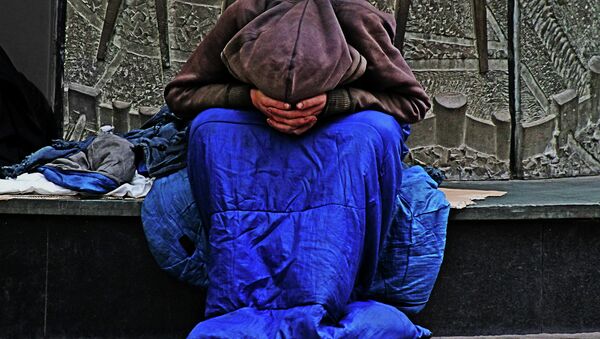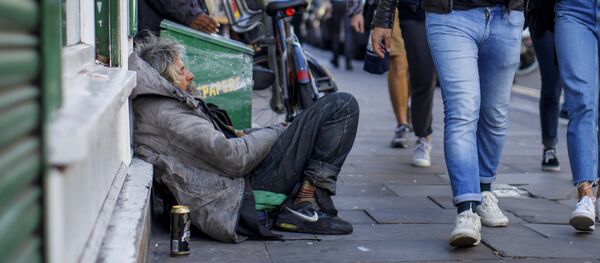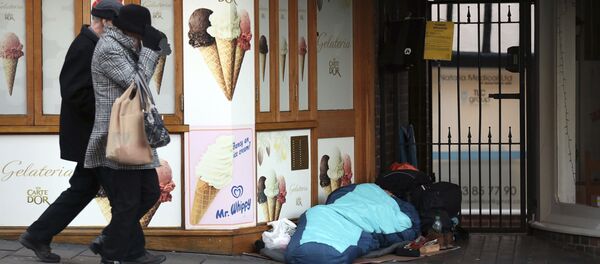Sputnik discussed the issue with Matt Townsend, the chief executive of ‘The Feed' charity.
Sputnik: As homelessness continues to soar in the UK, the number of councils issuing £100 fines for rough sleeping is increasing. However, how effective is a strategy that economically punishes the homeless at a time when they can't even afford a hostel room for the night?
Sputnik: Local authorities say such measures do not target the homeless, rather they‘re used to clamp down on antisocial behaviour — namely individuals begging in an aggressive or intimidating manner, or posing a health risk by setting up their tents in public places. Yet some argue these orders seem to penalise rough sleepers overall. Why is this happening?
Matt Townsend: A lot of rough sleepers will have mental health problems, there will be drug and alcohol problems, lots of other issues going on with them. And we need to make sure that specialist support is available for any issues that rough sleepers are experiencing.
It's often a very complicated situation. It's often not just a case of putting a roof over somebody's head, but the support that might be needed might be needed for several years. Fining people generally doesn't help. What's the point in fining somebody who's already trying to get money together for whatever reasons they're trying to get money together for?
READ MORE: Forget Snow, Snowflakes are Real Problem in UK
Sputnik: As the Guardian newspaper reports, some critics have accused councils of "airbrushing their streets", instead of finding an effective solution to the problem of rough sleeping. Do you agree with this opinion?
Matt Townsend: I suspect most local authorities have right intentions, and that most people think that they are doing what's needed to help rough sleepers. However, I think a lot of people find it complicated about how to deal with rough sleepers when there are drug and alcohol issues going on, and when people have other issues going on in their lives.
The most important thing that all local authorities need to do is make sure they keep providing specialist support; and where specialist support has been cut back around things like drug and alcohol addiction, we need to find ways to get more of that support available to people as soon as possible. It's pointless in a way just issuing fines and moving people on, because it's not actually addressing the underlying issue going on.
The views and opinions expressed by in this article are those of the speaker and do not necessarily reflect those of Sputnik.



